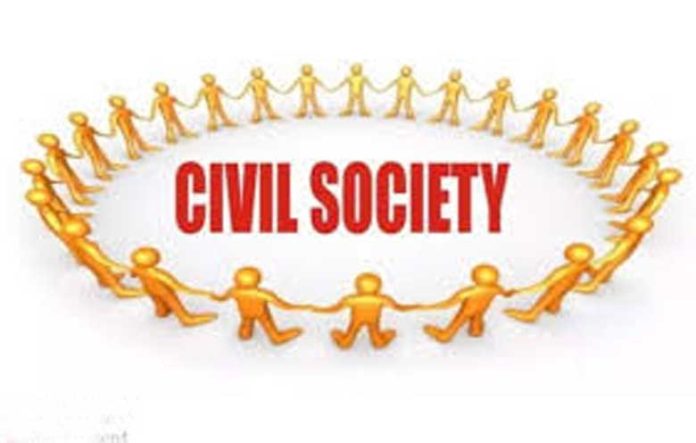Ansh Chowdhari
Civil society which ought to have acted as a functional domain questioning the authority of the Government has virtually dissipated in Jammu. The relentless co-optation of these groups on various levels across different domains has limited their manoeuvrability. Civil society groups are generally involved with interest aggregation and interest articulation through various means. They work as a functional conduit between the state and the society. They cultivate a positive relationship with both sides of the spectrum while ensuring that democracy finds its tethers within the society. They also reduce the burden on the state apparatus and provide facile means of overcoming the grievances. Therefore, the creation of a civil society is paramount for any ‘living population’ that wants to evolve and progress.
In Jammu’s case, it’s mostly the caste groups-though anachronistic, that serve as a major pressure groups working in tandem with the administrations to mend their policies time and again, in line with their community interests, and at times, even going against the political class, by echoing the sentiments of sub regional aspirations, like the demand for a holiday on the birthday of Maharaja Hari Singh led by Yuva Rajput Sabha. Even otherwise, these caste groups have had a formidable presence in the Jammu province. For instance, Pradesh Vishwakarma Sabha’s campaign for the reservation of the OBCs in the UT gained much traction among the backward sections. These caste groups create an informal association with the state structures and thereby influence their opinions and actions in a fashion that entails meaningful ‘allocation of values’.
Cultivating these demands through a proper channel and a hierarchical process is deemed necessary in our system where a bureaucratic chain is paramount for meeting them and caste groups’ facility to exploit this medium is a way of ensuring democratic decision making.
Apart from caste groups, the Bar Council and the Chamber of Business in Jammu have always carried Jammu’s flag with full force and vigour This was witnessed during the AIIMS agitation of Jammu in 2016 when every civil society group, notwithstanding their political affiliations, joined hands to further the cause of Jammu. The ‘Jammu cause’ became their prime motive, not least because of its emotive appeal within Jammuites, which wanted to assert itself against the alleged Kashmiri hegemony. This ridiculous idea of challenging every narrative of Kashmir has now acquired a flavour of permanence in Jammu’s political scene. This indicates a polarised medium of operation in this province where every action remains heavily reactive in its function.
The civil society of Jammu has never acted in an autonomous fashion. The local issues of Jammu have always remained hyphenated with Kashmir, and this has created a counter ideology in Jammu, which has inevitably remained antithetical to its own interests. The current wave of politics that is sweeping the state is unique in its respect of being homogenous in its character. Perceptibly, that has empowered the political parties here, whose salience has consequentially deterred the formation of a strong and effective civil society.
Personally, I believe that Jammu is still quite confused. It has had its aspirations stemming from a feudal order which, as per many Jammuites, are still not disposed. This has, ipso fact, made them callously indifferent towards these organisations and have pushed them into a spiralling vortex of an inferiority complex where they view the state as the only end at its disposal. This lack of self-belief has stymied the growth of any formidable civil society group in the province. It’s surprising that a political vacuum which otherwise lays bare the condition for the mushrooming of groups has failed to provide any meaningful civil society organisation in the province. Incidentally, the citizens’ dependence on the state structures have grown tremendously. The rickety groups like Dogra Sadar Sabha, etc have virtually dwindled into oblivion.
Addressing these factors often requires a multi-faceted approach involving political and social reforms promoting democratic governance, protecting human rights, fostering civic engagement, and creating an enabling environment for civil society to thrive. The curative role of the civil society must be emphasised and promoted. Jammu’s need to have a vibrant civil society is necessary, not just for justifying some theoretical principles, but for the larger betterment of its society. These organisations ought to act as the chief symbol of Jammu’s democratic temperament.


